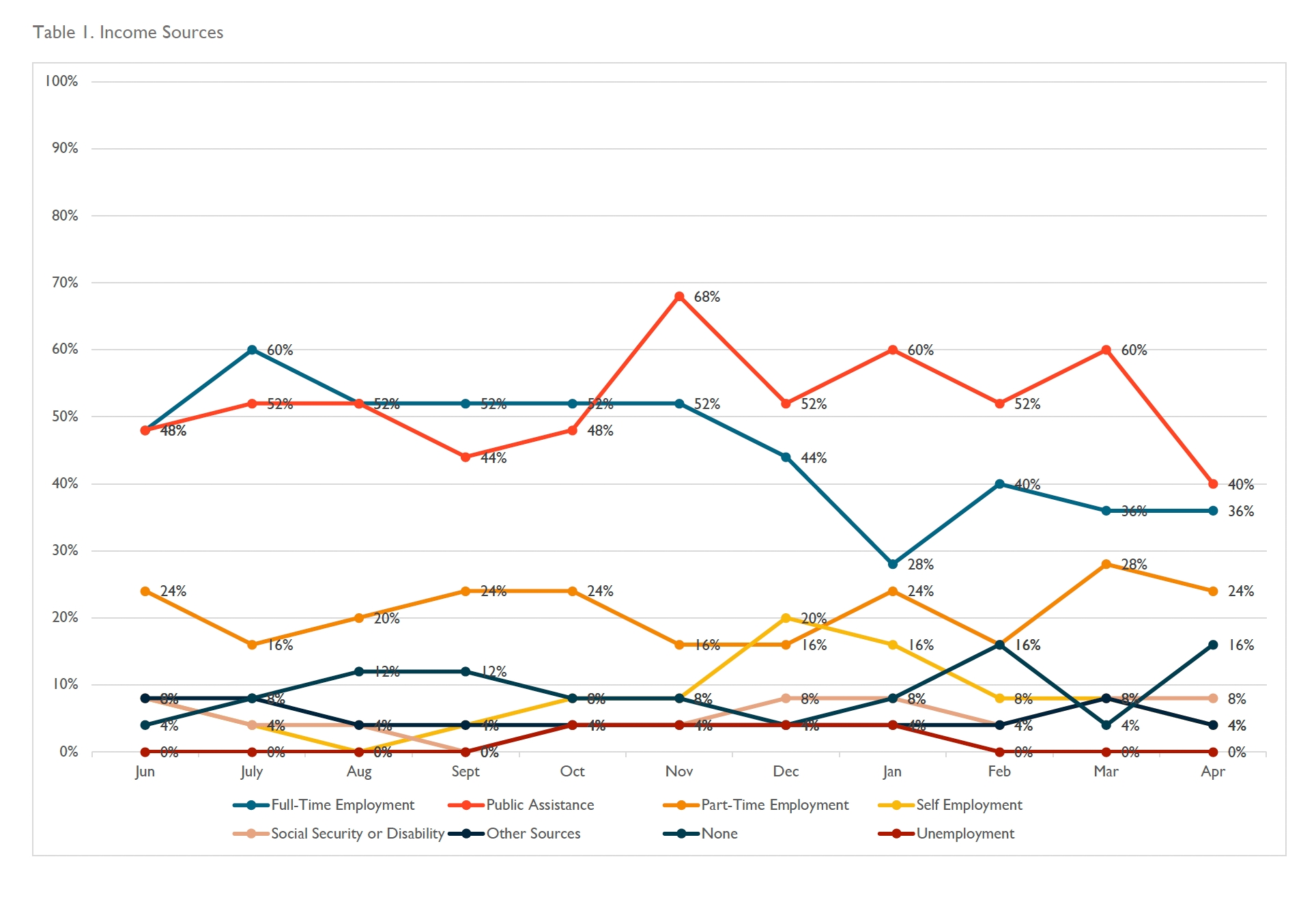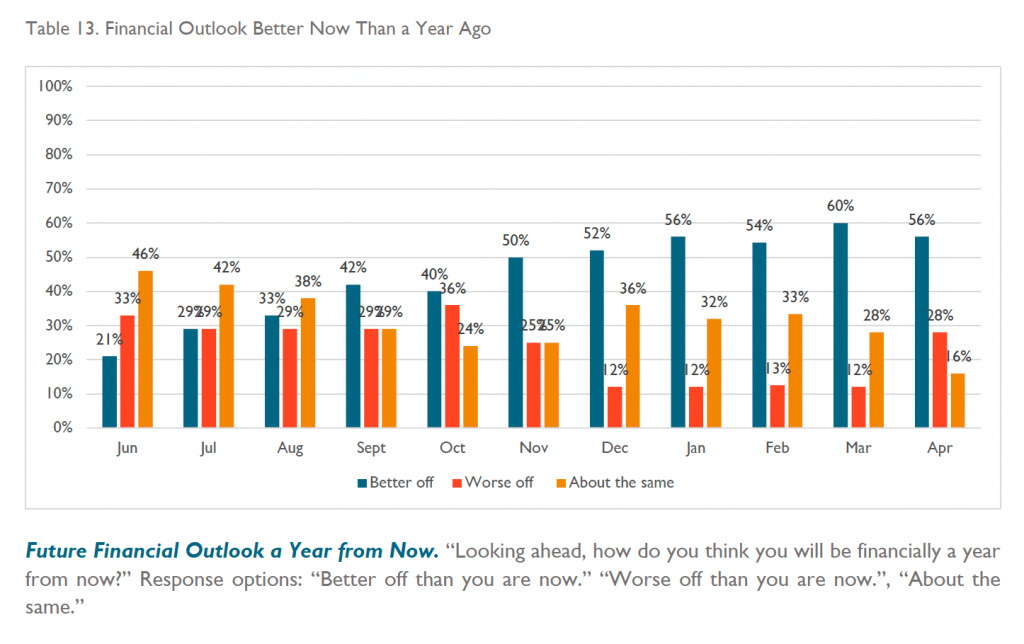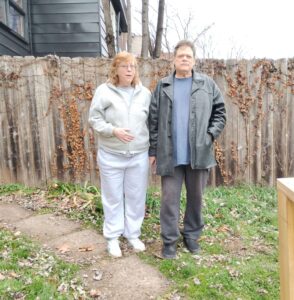What impact could an additional $500 a month have on a single-mother household in Pittsburgh?
This question was at the heart of Catapult’s Guaranteed Basic Income Program.
From June 2023 to April 2024, this pilot initiative—led by Catapult in partnership with Pittsburgh Scholar House and Point Park University—aimed to explore that very impact. Supported by a $250,000 grant from the Early Childhood Funders Alliance at Grantmakers of Western Pennsylvania, the program was part of a broader effort to address early childhood outcomes and alleviate the effects of poverty on families with young children in Allegheny County.
Known as the Prenatal to Three Investment Advisory Councils, this initiative focused on the most pressing challenges affecting young children and families during the critical prenatal to three stage: child care, maternal health, and economic security. Catapult was selected as the lead organization for the economic security group, spearheading efforts to develop and implement solutions to reduce economic disparities for mothers and young children living in poverty.
“The research shows that support in the early years of a child’s life has the greatest impact, yet investments in resources that would support early relational health and the stability of a child’s caregiver are often overlooked. Catapult’s anti-poverty expertise and extensive experience working with single mothers made them the perfect fit to design a pilot to address this challenge.”
Robyn Tedder, an early childhood social impact consultant
The Catapult pilot was built around a straightforward yet sometimes debated idea: providing direct cash payments to households with little or no restrictions—an approach known as “guaranteed income.” This method has the potential to alleviate poverty, support families, and reduce racial and gender disparities.
“We made the intentional decision not to be prescriptive about the use of the funds. We believe that each individual knows what is best for their family, and we understand that needs and goals vary across households,” said Jodi Salant, Catapult’s Director of Development.
The history and potential of Guaranteed Basic Income
The idea of a Universal or Guaranteed Basic Income (GBI) can be traced back to at least 1795, when American founding father Thomas Paine argued that private land ownership had deprived people of their inherent rights and that compensation was necessary for all. However, the concept remained largely overlooked until recent years, as widening economic inequality, advancements in AI and automation, and the COVID-19 pandemic exposed weaknesses in existing social safety nets.
Studies on GBI have demonstrated its potential to improve financial stability, health, and overall well-being for participants. One of the earliest experiments, the Minicome experiment in Manitoba, Canada in 1974, tested the concept of a “negative income tax,” which provided financial support to individuals whose income fell below a certain threshold. The experiment showed significant impacts on economic security, leading to better health outcomes and a reduction in the use of social services.
More recent pilots, such as the Stockton Economic Empowerment Demonstration in California, provided 125 residents $500 monthly and observed improved mental health, stable workforce participation, and the ability to meet basic needs. In Kenya, GiveDirectly’s Universal Basic Income Pilot enabled recipients to invest in businesses and agriculture, boosting local economies. Programs targeting specific groups, such as the Magnolia Mother’s Trust in Mississippi, which gave $1,000 monthly to low-income Black mothers living in subsidized housing, helped participants reduce debt, increase savings, and better provide for their families.
While more research needs to be done, these findings provide evidence that a monthly GBI makes people in poverty more productive, not less, which is the most common critique of GBI.
How the Catapult GBI Program worked
The Catapult GBI Program included 25 participants who were:
- Previous participants in a Catapult or Scholar House program,
- Single mothers, and
- Had at least one child under the age of 5 years old.
Each participant received debit cards provided by MoCaFi, a fintech company dedicated to closing the wealth gap for marginalized communities. Each month, $500 in funds were added to the card, and participants were asked to complete a monthly assessment. These assessments covered a range of topics, including financial practices, satisfaction with their financial situation, confidence in managing financial aspects (e.g., the influence of emotions and values on spending), how much control they felt they had over their situation, and stress levels.
What we learned from the pilot
Throughout the pilot, 11 surveys were conducted to gather monthly reflections, with the final month featuring a voluntary interview to gain deeper insights from participants.
At baseline, in June 2023, the largest income categories participants selected were full-time employment (48%) and public assistance (48%). Just over half (52%) had one source of income, 39% had two sources of income, and 9% had three sources of income.

When asked about how they planned to use their funds, most participants noted that they planned to use the money to pay bills (30%) and for savings (30%). Over a quarter (26%) reported paying down loans or other debt. Individuals also noted planning for future purchases, including a car (17%) or a house (13%). Necessities (13%), childcare (13%), and other children-related needs (17%) were also common themes.
Though the benefits were not uniformly experienced, by the end of the 11 months, many participants were successful in improving their financial stability. At the end of the pilot, participants were offered follow-up support with a financial counselor to ease the transition back to life without the extra funds.
Key findings:
- Over 50% of participants reported feeling financially better off compared to the previous year after five months into the GBI pilot, with this trend continuing throughout the program. However, a notable proportion of participants still felt financially worse off by the end of the pilot, indicating mixed impacts.

- The average credit score remained stable at 570.
- Participants’ mean monthly debt decreased over time, although the median remained relatively stable.
- The average amount of savings among participants increased from $375 at baseline to $600 by April 2024, with the median also rising. However, a substantial portion of participants (39%) still reported having no savings at the end of the pilot.
- Financial satisfaction increased over the first four months and then stabilized, with participants reporting the highest satisfaction in their ability to pay for necessities and the lowest satisfaction with savings and debt levels.

- Many participants felt optimistic about their financial future due to new financial habits, job prospects, or educational progress. However, some remained concerned about rising expenses, loss of income, or little change in their financial situation.
"At Pittsburgh Scholar House, we've seen firsthand the transformative impact of GBI on parenting students. Participants in the program reported significantly reduced incidents of parental, financial, and academic stress. Remarkably, 100% of the Pittsburgh Scholar House families enrolled in the Catapult GBI pilot who were on track to graduate have completed their degree programs, crediting the pilot as instrumental in their persistence and success. We believe that GBI is not just a financial intervention but a profound restoration of financial dignity for economically striving families, paving the way for generational progress and stability. We are deeply grateful to Catapult for incorporating Pittsburgh Scholar House families into the pilot, as it has undeniably changed the economic trajectory of these families for the better.”
Dr. Diamonte Walker, CEO of Pittsburgh Scholar House
Next Steps
This pilot program provided valuable insights, and we look forward to launching more in the future, refining key aspects based on what we’ve learned.
Our recommendations for a future pilot:
- Offer enhanced financial education and counseling
- Provide targeted debt reduction support
- Include additional mental health and stress management support
- Set up ongoing check-ins
- Consider customized program adjustments
- Measure children’s well-being






